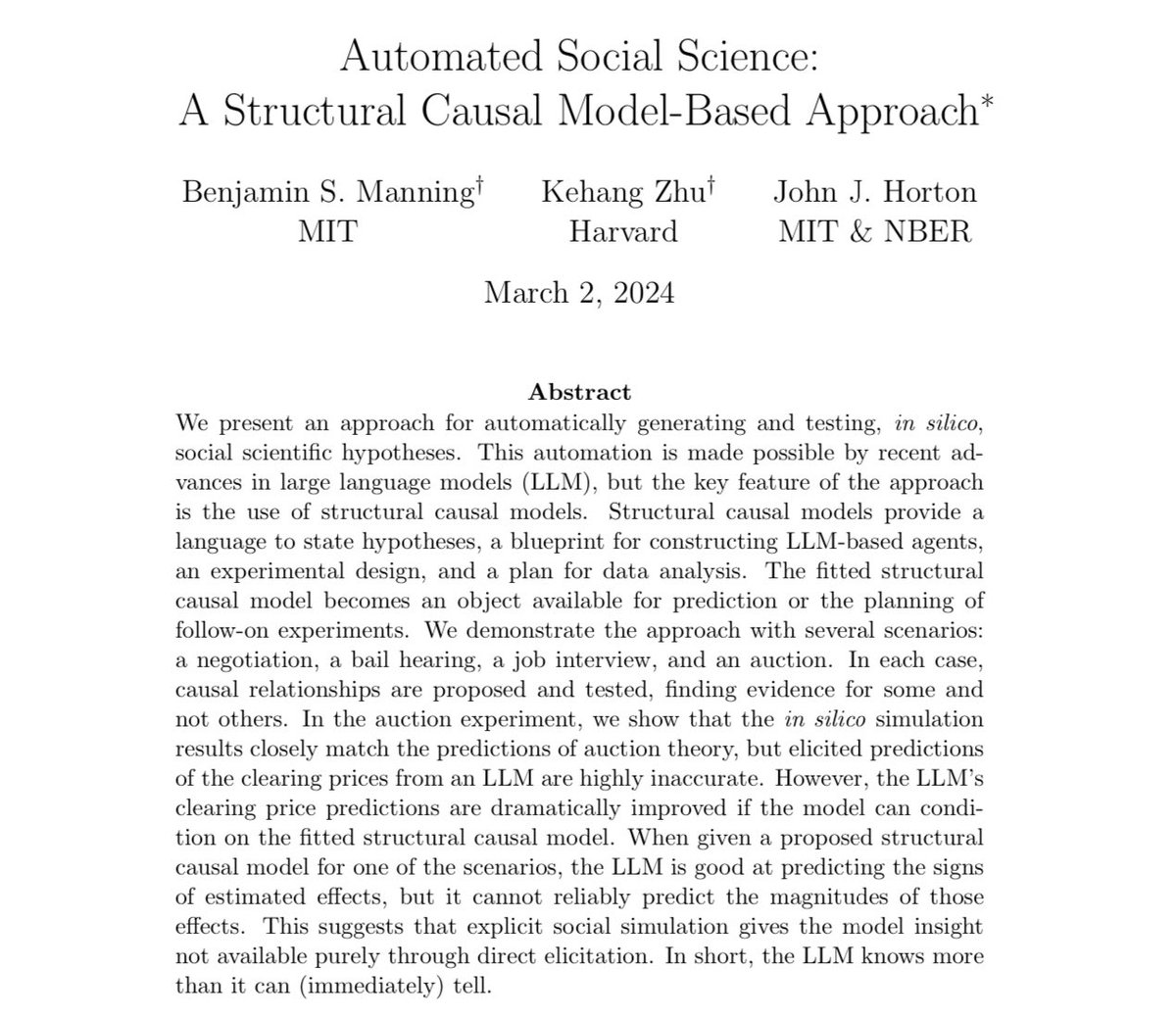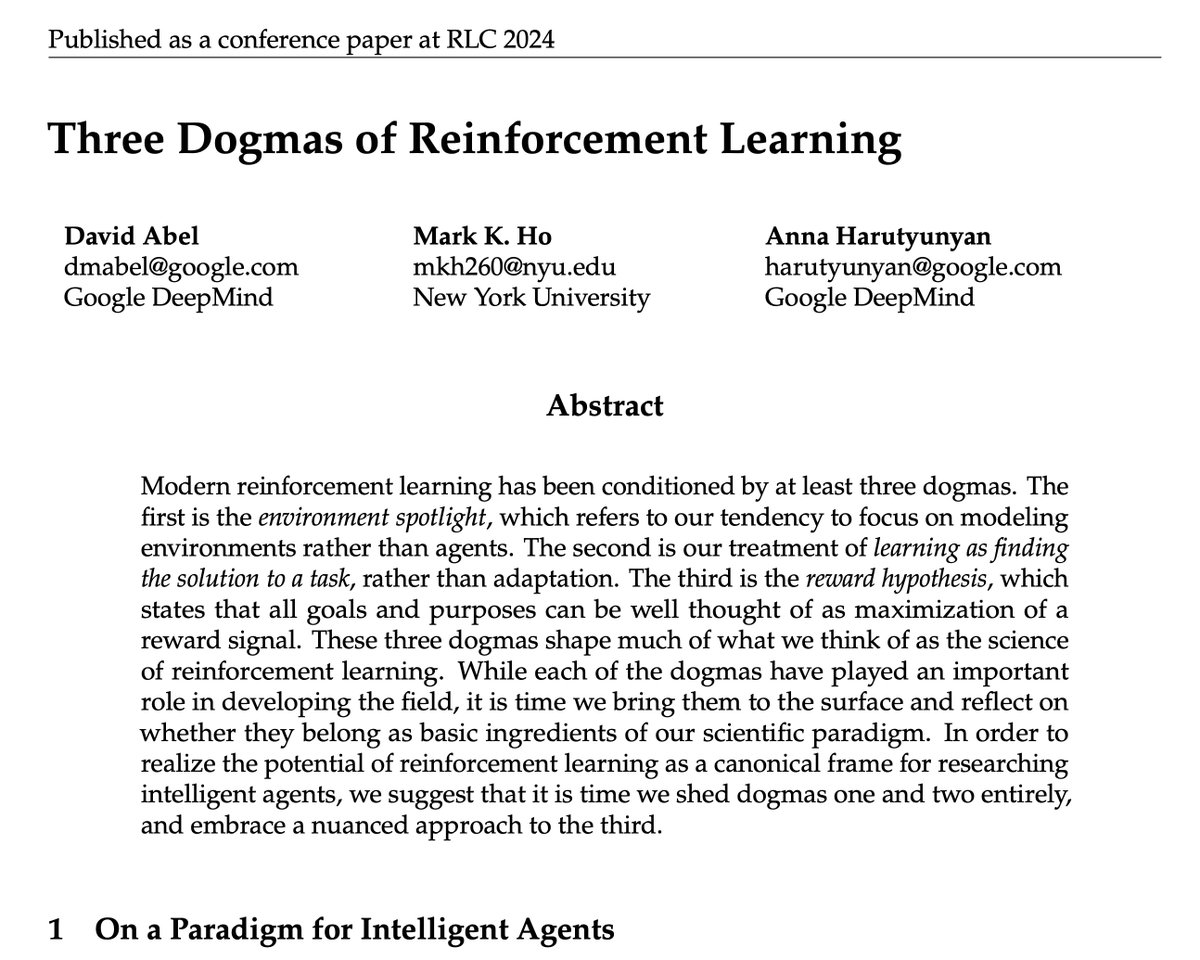
Stefano Benigni
@stefano_benign
Decision making, learning, cognition, causality - MSc in Aerospace Eng, PhD @ImperialBiz
ID: 2505887543
24-04-2014 09:56:03
244 Tweet
1,1K Followers
4,4K Following

New working paper by Benjamin Manning & Kehang Zhu that & I’m super excited about benjaminmanning.io/files/rs.pdf






New #RLC2024 paper Three Dogmas of Reinforcement Learning joint w/ Mark Ho and Anna Harutyunyan | Աննա Հարությունյան! arxiv.org/pdf/2407.10583 We reflect on where our scientific paradigm needs adjustment, and suggest three departures from previous conventions. Curious to hear what folks think! 🧵






🚨Thrilled to share our new paper "Causal Claims in Economics"! 🚨 Thiemo Fetzer 🇪🇺🇺🇦 - same handle elsewhere and I analysed over 44,000 economics papers using AI to create a knowledge graph of economics and map out causal relationships. Here's what we found 🧵👇















